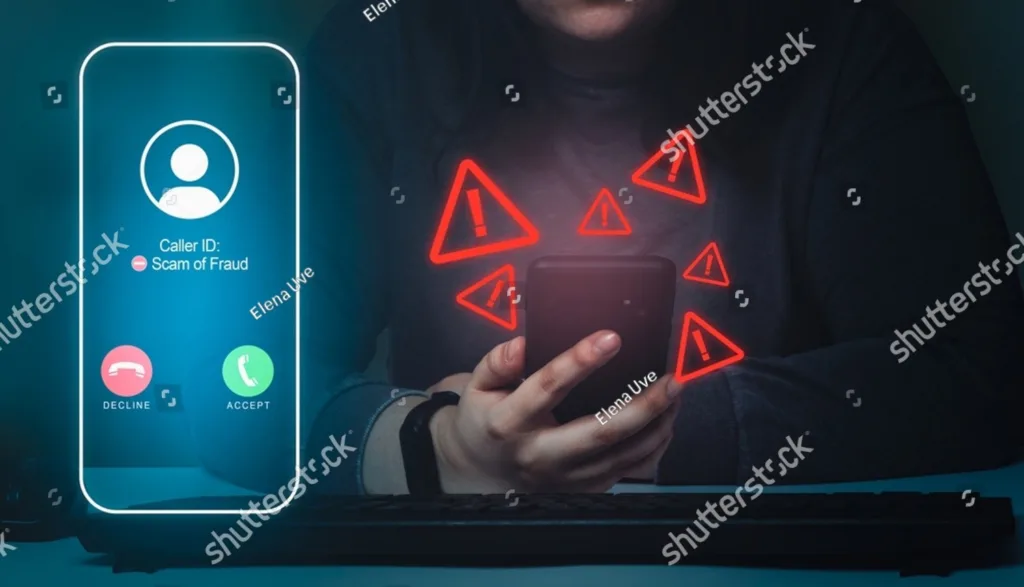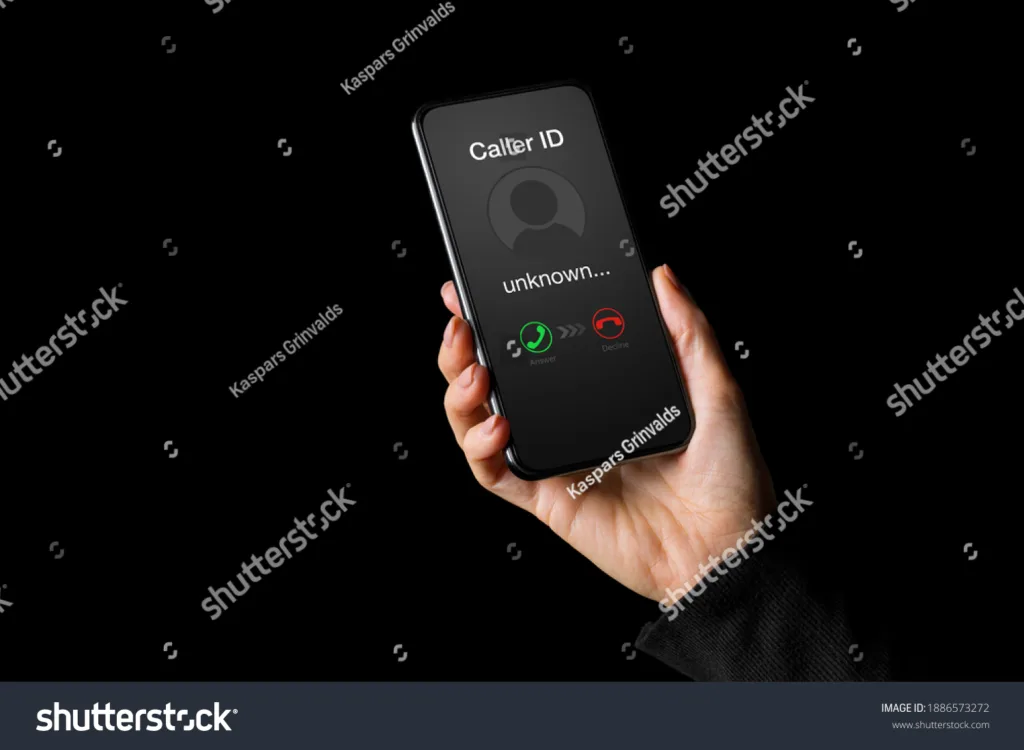Scam Call Identification and Prevention :
Learn effective scam call identification and techniques, Protect yourself from fraudulent calls with these actionable tips.

Now, scam call has become a real annoyance and a threat to citizens quite considerable. Since the world is fast changing into a digitized one, scamming isn’t an exception. Modern-day scammers have stronger weapons to wield themselves, deceive, and eventually gain access into others’ sensitive information. This article, therefore, elaborates more on the methods for identifying scam calls and the tips to prevent them, thus empowering the users to stay alert and covered.
what scam calls are?
Scam calls trick people through calls for misrepresentation so that they could disclose personal information or make transactions or compromise security. These calls build up through different evidences to offer themselves as real ones by impersonation, government officials, banks, or credible companies.
Different types of scam calls are?
- Phishing: Callers pose as representatives of trusted organizations and seek sensitive information like personal identification numbers or bank details.
- Tech Support Scam: Claim that there’s a problem with your computer or other device and want remote access to ‘fix it.’
- Lottery and Prize Scam: Promises of incredible winnings in return for “processing fees.”
- IRS or Tax Scams: Put up a threat of action by law if an immediate payment is not made.
- Robocalls: An automated message disseminating the fraudulent information or offer
The Increasing Menace of scam Phone Calls
Bogus phone calls have gone to an untold level and have become the greatest problem in the global economy. They are worth billions nowadays. Technology and the world of data are such that scamsters perfect their tricks without the average man’s knowing what is a real call and what is phony.
Such Statistics Matt Residing in the Issue:
As reported by Americans, there are scams that cost them losses exceeding $39 billion in 2023.
Almost 50% of the phone calls are scam calls in many areas of the world. This figure is particularly high during the holiday season.
Techniques for Identifying Scam Calls
- Recognizing Suspicious Patterns
Calls that seek to obtain time-sensitive action or attach some form of consequence are hardly without exception a scam.
Any unsolicited offers that sound “too good to be true” should ring bells of trepidation.
- Caller ID and Reverse Lookup Services
Integrate reverse caller ID services to unknown numbers. Reliable tools can equip you with a caller’s details including possible scam alerts and user-reported complaints.
- Check for Spoofing
Spoofing is a process by which the caller ID is manipulated to make a call appear from a trusted source. Local area codes are often used so as to entice the victim in answering the call.
- Listen for Scripted or Robotic Speech
Automated calls typically use pre-recorded messages for a generic tone as their characteristic signs, and so they would point toward automation and the possibility for scam.
- Call Verifier
If a person claims to be calling on behalf of a bank or some government agency, ask him or her for their name, department, and contact number. You can verify the person’s identity by calling the official number of the organization independently.
A Secure Approach to Avoid Scam Calls
- Use Technology:
Call Blocking Applications: Advertise applications that easily block scam calls. Examples include Truecaller and Hiya, which come with updated databases of spammers.
Phone Features: Almost all smartphones now provide in-built features to block unknown or spam numbers.
- Prevention from Sensitive Information Sharing:
Do not share any personal or financial information over the telephone without having placed the call yourself and without trust in the person on the other end.
- Stay current with trends in scams:
Listen up for the news about fresh scams in your area. Knowledge is a very powerful arm against the evil.
- Report the scam calls:
Communicate with government authorities, consumer protection agencies regarding scam calls as it will not let others fall prey into them.
- Educate other people:
Spread the word to your friends and families, mostly to the elderly ones who are usually the victims as they are easily scammed.
Technological Solutions Against Scam Calls
AI-based Caller Identification
Artificial Intelligence is changing the way that scam calls are detected. It harnesses data and analyzes call patterns and language to identify live scams in real time.
Crowdsourced Databases
Truecaller is another example of a crowd-sourced system that alerts others to harmful numbers after having been detected by users: such a system would rely on community effort to build a defense.
The Role of Reverse Caller ID Services
Reverse caller ID services play a critical role in scam call prevention by enabling users to identify unknown numbers. These services provide:
Detailed information about the caller, including location, carrier, and spam likelihood.
User-reported tags and reviews of suspicious numbers.
Alerts about known scam patterns, helping users avoid fraudulent interactions.
Following are the some important links where you can get apps to tackle scam calls :
https://play.google.com/store/apps/details?id=com.caller.name.location.numbertracker&hl=en
https://www.centurylink.com/home/help/home-phone/calling-features/caller-id.html
https://reversephonesnumber.com/

Encryption and Security Protocols
Telecom companies have started adopting new promising mechanisms such as STIR/SHAKEN as part of their advanced security time as an authentication measure against spoofing.
The Significance of Services for Reverse Caller ID :
Functions of reverse caller ID services are valuable in preventing users from calling up scam numbers as well as identifying unknown numbers. These services provide:
Detailed information on names, location, carriers, and the likelihood of being spam.
Reviews and tags posted by users for suspicious numbers.
Patterns of scams so that the user can keep away from fraud calls.
What to Do When You Get a Scam Call ?
- Do not respond: You should not press any buttons or address a live agent.
- Hang up the phone: Scammers frequently rope you into long conversations to try to extract different types of information from you.
- Block the number: Make use of your phone’s block feature, or download a third-party app to prevent future calls.
- Report the incident: You can file a report with your telecom provider or local consumer protection agency.
Shielding at-risk communities
Fraudsters mainly concentrate on specific targeted groups, for instance:
Aged individuals: Making them aware of the usual scam tactics and providing tools for caller identification.
Small businesses: Alerts against any fake supplier calls and phishing attempts.
Students and recent entrants to the work force: Awareness about scholarship scams and loan repayment scams.
As far as emerging trends in preventing fraudulent calls:
- Application of Artificial Intelligence and Machine Learning
This is one of the age-defining technologies which would include the predictive analysis to know the upcoming trend of scams.
- Amplified Collaboration
Telecom providers and app developers along with government agencies would have to work hand in hand for strengthening defenses.
- Worldwide Databases
Universal collective efforts to pool databases for tracking and containment of international scams.
Conclusion
Indeed, identifying and preventing scam calls requires awareness, technology, and proactive efforts. Being informed and utilizing reverse caller ID services can help in not only protecting oneself but also in contributing to a more secure environment of communication. The same way, as scammers evolve, we must have an evolution in revamping our defenses, ensuring that vigilance and innovation will remain our strongest assets in this ongoing battle.
Thus, the identification and prevention of a scam call involve awareness, technology, and proactive actions. Being informed and using reverse caller ID services would help an individual in protecting oneself against scams while contributing to a safer environment for communication. Because of the evolving nature of scammers, we, too, must have our evolution in defense revamping so that vigilance and innovation will remain our strongest assets in this ongoing battle.
Thus, a scam call identification and prevention require the effects of awareness, technology, and proactive efforts. Being informed and using reverse caller ID services would assist one in shielding himself from the threats of scammers while contributing to a safer environment of communication. Just as scammers keep on evolving, we must also keep on revamping our defences to ensure that vigilance and innovation will remain our strongest assets in this ongoing battle.
FAQ :
- What would I do if I accidentally gave out personal information to a scammer?
This would mean contacting your bank or credit provider immediately, updating your passwords, and reporting the case to local fraud authorities. Some may also recommend identity theft protection services for added security.
2. What are some of the tools that help in preventing scam calls?
Such applications include Truecaller, Hiya and Nomorobo, which help in identifying or blocking scam calls. Also, some smartphones have provisions that can also silently approach an unknown caller or flag a number as suspicious.
3. How to recognize a scam phone call?
Scam calls will almost always involve “urgent requests” or even threats, or they will be some lame “offer” that is just too good to be true. It will include the issues of caller-ID spoofing and robotic messages, generic messages, etc. Don\’t forget about using those services and check out reverse caller ID to verify numbers you are unsure of.
4. Can scam calls use my local area code to sound trustworthy?
Sure, many scammers use “neighbor spoofing” to make a call appear local, matching your area code or within your first few digits of the phone number. This will increase the likelihood of answering the phone. To avoid that, always verify unknown numbers through caller ID or reverse lookup services.
5. Should I block an incoming scam call?
Yes, it does block scam numbers from ringing anymore. You can probably do it through your phone’s built-in blocking feature or applications like Truecaller, which would also let one report the number to enrich its scam database for other users.
6. Are government or official organizations ever going to contact me by phone to obtain sensitive details?
No real organization will ever ask for sensitive information, such as passwords or financial data, through a phone call from federal agencies or banks. If there’s any doubt, hang up and call the organization back using official means.
